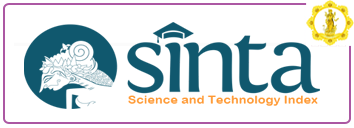Bahasa Daerah dalam Kebhinekaan Bangsa Indonesia
DOI:
https://doi.org/10.25078/ds.v1i2.534Abstract
Language is very important, especially seen from the function of culture and social functions in addition to other functions. It is very important for a country to have a national language which functions as a unifying tool for various ethnic groups with different backgrounds. Likewise, the function of regional languages is very important for the survival of a particular regional culture. Regional languages as one of the nation's wealth have a function as a means of communication for the supporting community. Apart from being a means of intra-ethnic communication, regional languages also function as supporters of the national language, namely Indonesian. On the basis of this function, regional languages should continue to be fostered and developed in order to strengthen the resilience of the nation's culture. Regional languages should no longer be treated as one of the cultures whose functions can be replaced by the functions of other languages. Article 36 of the 1945 Constitution states, among other things, that regional languages that are well maintained by their speakers will be respected and preserved by the state because these regional languages are part of the living Indonesian culture. The National Language Policy formulates that in relation to the development of state life in Indonesia towards regional autonomy and the importance of fostering and preserving regional culture, regional languages need to be given the widest opportunity to play a bigger role. Strengthening the existence and continuity of regional languages aims to protect regional languages which are one of the nation's wealth. Indonesian as a dynamic language can take advantage of local language vocabulary as an enrichment of Indonesian vocabulary. This attitude not only strengthens regional culture, but also strengthens national culture.









